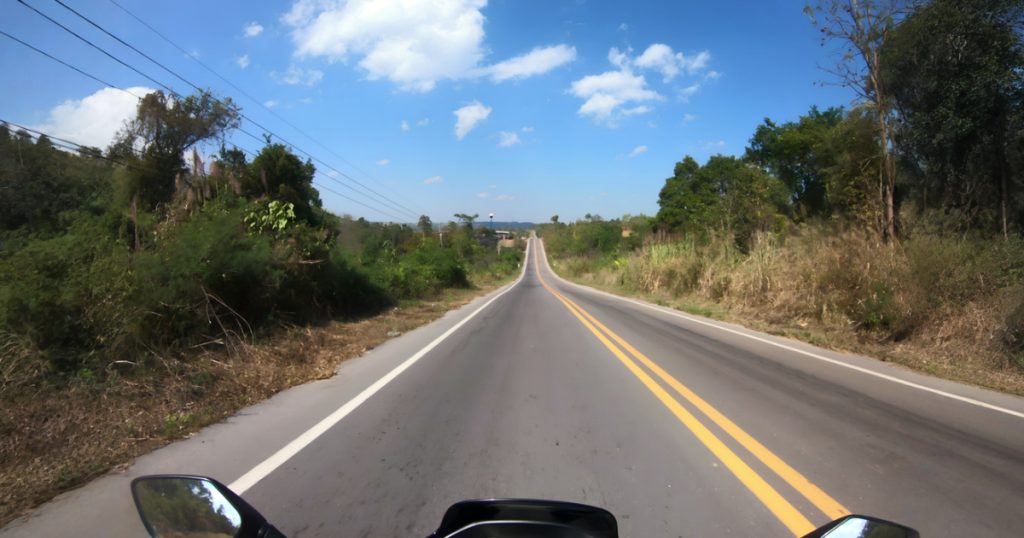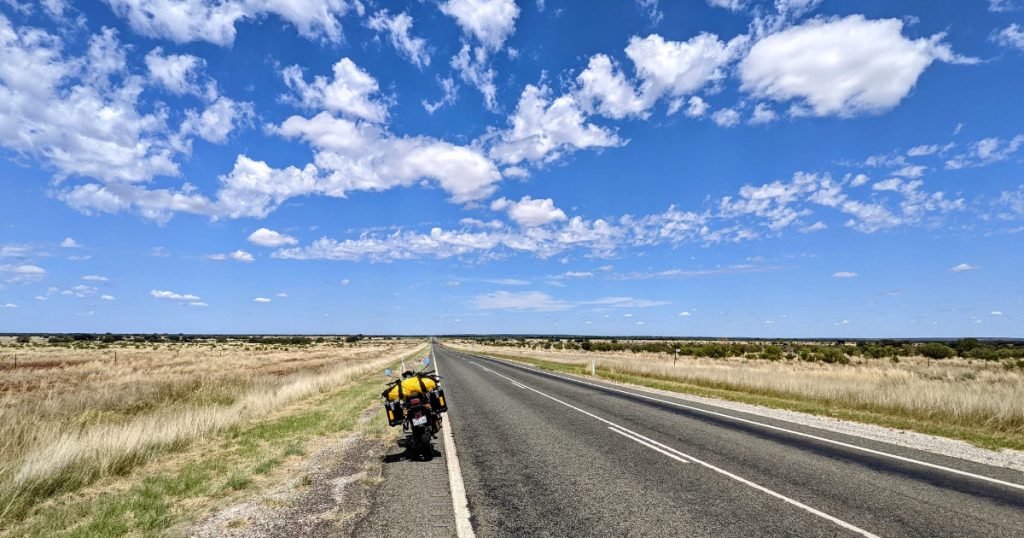Time, Flow, and Motorcycling
I live in Australia, where distances sprawl like stories with no punctuation.
Once you leave the city, you can go for miles between towns. On a motorcycle, these vast stretches do something strange to your sense of time. Your awareness loosens. It stops clinging to the usual markers—time, speed, destination—and begins to float somewhere just behind you, light and untethered.
This sense of timelessness is more than a side effect of riding. It’s a psychological state—a shift in how we process experience and time. Hungarian psychologist Mihály Csíkszentmihályi1, gave us a word for this feeling: flow. Riding isn’t just movement or transport; it’s an altered state of consciousness.
Csíkszentmihályi described flow as a state where you are so fully absorbed in an activity that time seems to slow down or speed up, your sense of self fades, replaced by total engagement. Flow emerges when the challenge of the task is perfectly balanced with your ability to meet it. This fits beautifully with motorcycle riding—technical enough to demand focus, but not so hard it overwhelms. Flow sits perfectly in the saddle between boredom and anxiety. If a task is too easy, your mind wanders; too hard, and tension takes over. Time doesn’t just distort—it becomes irrelevant. You’re not watching the clock; you’re fully inside the moment, absorbed in the rhythm of the road. Csíkszentmihályi called it “the optimal experience”—the state where people perform at their best and feel most alive.
Flow emerges when the challenge of the task is perfectly balanced with your ability to meet it.
Csíkszentmihályi identified several conditions that tend to bring about this state. And as a motorcyclist, each one feels familiar.
First, you need a clear goal. Not in some abstract sense, but something immediate and embodied—ride the line, hit the apex, lean with the curve. There’s a road ahead, and your purpose is to ride it well. That clarity anchors you, and frees your focus.
Then, there must be immediate feedback. A motorcycle doesn’t buffer you from consequence—it communicates everything. Throttle, lean, brake, clutch—all of it feeds back in real time. You know exactly how you’re doing by how the machine feels beneath you.
And perhaps most important: the balance of challenge and skill. The road has to ask something of you. Not so much that you freeze, but enough that you must respond fully. A fast, technical section demands your presence. You can’t fake your way through. Flow only emerges when the task stretches you just enough to meet it.
And when these conditions are met, something begins to shift.
Concentration deepens. Distractions fall away. The mental noise fades—no errands, no emails, no past or future. Just road, throttle, wind. Awareness narrows to the moment.
Self-consciousness dissolves. You’re not watching yourself ride, you’re not even thinking about yourself. You’re just riding. You become the doing.
And most importantly, you’re not riding it for praise or outcome. There’s no destination that could make it more worthwhile. The reward is the ride itself—the act of being completely absorbed. That’s what makes it meaningful.
And then time—time itself—begins to dissolve. Minutes lose their shape. An hour can pass in what feels like a blink, or a single corner can stretch out and fill your entire awareness. You stop tracking time by the clock and start feeling it in rhythm and motion—in the rise and fall of the engine, the beat of your breath, the curve of the road beneath you. You are no longer moving through time; you are simply in it.
You are no longer moving through time; you are simply in it.
And it’s all joyful. Not loud, giddy joy, but something deeper—satisfaction, absorption, grace. My background is in music, and the closest parallel I can draw is playing in a truly great band. When everyone’s locked in, listening, responding—when the rhythm breathes together, when it plays just right—that’s flow. It’s not about individual brilliance; it’s about a collective moment unfolding with no friction. You’re not thinking, “I’m doing well,” you’re in it. Playing becomes being.

I feel something strikingly similar on the bike. The lean into a corner, the roll-on of throttle, the dance of clutch and gear—when it all clicks, it’s not mechanical, it’s musical. Fluid. Expressive. Right. It exists in the doing.
Motorcycling becomes more than just transport. More than covering ground. It becomes a kind of ritual of presence—a repeated practice of attuning to the moment. A physical meditation. A way of living time differently, of stepping outside the fragmented clockwork of everyday life and into something more whole, more rhythmic, more alive. The experience is so intrinsically rewarding that you don’t do it for external validation but for the sheer joy of it.
We form into communities based on this joy. Virtual spaces like Bluesky, or Facebook, or Netrider. Local riding groups. We come together not to compete or perform, but to share that feeling. The immersion. The moment. The ride.

Riding changes the way we move through time. But it also changes how we think about it.
Motorcycling reveals that time isn’t fixed. It’s elastic. It’s Experiential. It bends and flexes depending on how present we are in the moment. Flow—on a bike or anywhere else—isn’t just about peak performance. It’s about being alive in time, not just passing through it.
One of the most unexpected gifts of motorcycling is a different kind of freedom—freedom from time. Not from its passage, of course; no one escapes that. But freedom from the tyranny of schedule and obligation. From the artificial carving-up of life into hours and deadlines and “are we there yet?” Riding gives us the rare gift of time freedom—the ability to live inside time without the constant pressure of the clock. You stop measuring the day by how much you’ve accomplished, and start feeling it in moments—the cool air as you climb through elevation, the flicker of sun between tree trunks, the exact weight of throttle through a fast curve. It’s not that time stops, but that you stop resisting it.
This is what I’d call time freedom: the ability to live inside time without being ruled by it. It’s rare. Most of us only taste it on holidays, or in childhood, or maybe during those quiet Sunday afternoons when no one expects anything from us. But on the bike, it’s built in. You’re not on anyone’s clock—not even your own. You’re just riding.
And in that space—beyond measurement, beyond pressure—time becomes something richer. Not a container to fill, but a canvas to move through. Not something you spend, but something you inhabit.
Motorcycling becomes more than movement. It becomes attention, presence, embodiment. A ritual of being. A quiet refusal to let time be dictated, rather than lived.
- Roughly, “Michael from Seklar Saint Michael”. Szeklars are an ethnic group in Transylvania where my wife, Dalma, is from. And of course, Mihály is yet another in her long list of Hungarians who have changed the world ↩︎